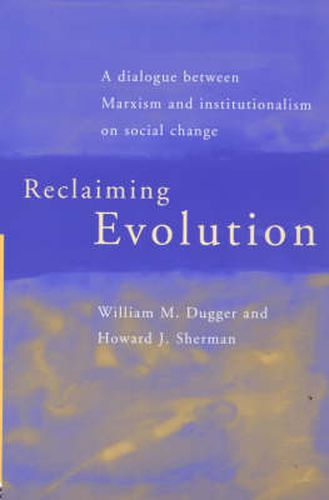Readings Newsletter
Become a Readings Member to make your shopping experience even easier.
Sign in or sign up for free!
You’re not far away from qualifying for FREE standard shipping within Australia
You’ve qualified for FREE standard shipping within Australia
The cart is loading…






In this unique book, Howard Sherman and William M. Dugger engage in a dialogue on social evolution from Institutionalist and Marxist perspectives, each representing one side. It is their intention to explore the way society develops using the equally radical, but very different approaches of Thorstein Veblen and Karl Marx. The dialogue proceeds with a series of questions - each answered from the two perspectives. Beginning with an intellectual history and definition, Reclaiming Evolution examines social evolution in terms of causal elements; economic relations, technology, enabling myth and political relations, and social processes; structural change, social tension and social conflict. It thus provides an invaluable guide on how different economic theories can be used as a tool to view society - and the way different standpoints can both compliment and contradict eachother. The result is an extremely accessible study of economic evolution that will be essential reading for students of political economy.
$9.00 standard shipping within Australia
FREE standard shipping within Australia for orders over $100.00
Express & International shipping calculated at checkout
In this unique book, Howard Sherman and William M. Dugger engage in a dialogue on social evolution from Institutionalist and Marxist perspectives, each representing one side. It is their intention to explore the way society develops using the equally radical, but very different approaches of Thorstein Veblen and Karl Marx. The dialogue proceeds with a series of questions - each answered from the two perspectives. Beginning with an intellectual history and definition, Reclaiming Evolution examines social evolution in terms of causal elements; economic relations, technology, enabling myth and political relations, and social processes; structural change, social tension and social conflict. It thus provides an invaluable guide on how different economic theories can be used as a tool to view society - and the way different standpoints can both compliment and contradict eachother. The result is an extremely accessible study of economic evolution that will be essential reading for students of political economy.